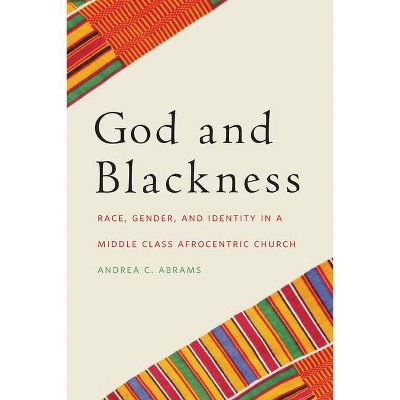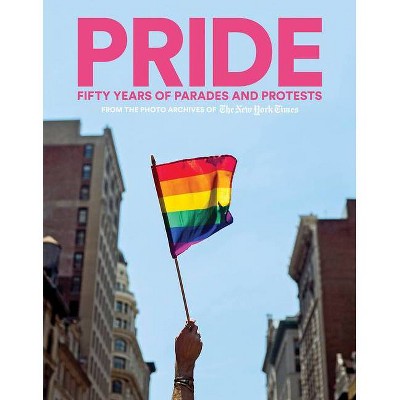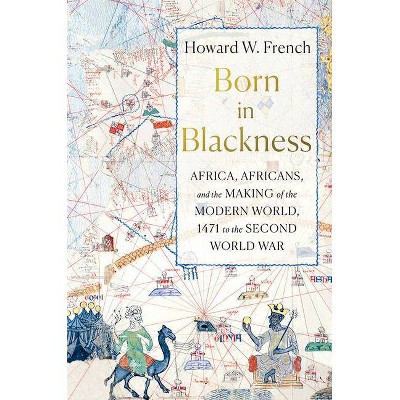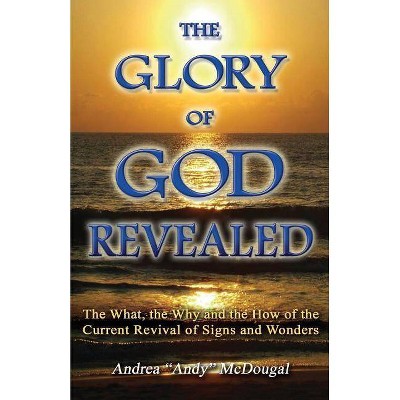God and Blackness - by Andrea C Abrams (Hardcover)

Similar Products
Products of same category from the store
AllProduct info
<p/><br></br><p><b> Book Synopsis </b></p></br></br>Blackness, as a concept, is extremely fluid: it can refer to cultural and ethnic identity, socio-political status, an aesthetic and embodied way of being, a social and political consciousness, or a diasporic kinship. It is used as a description of skin color ranging from the palest cream to the richest chocolate; as a marker of enslavement, marginalization, criminality, filth, or evil; or as a symbol of pride, beauty, elegance, strength, and depth. Despite the fact that it is elusive and difficult to define, blackness serves as one of the most potent and unifying domains of identity. <em>God and Blackness</em> offers an ethnographic study of blackness as it is understood within a specific community--that of the First Afrikan Church, a middle-class Afrocentric congregation in Atlanta, Georgia. Drawing on nearly two years of participant observation and in-depth interviews, Andrea C. Abrams examines how this community has employed Afrocentrism and Black theology as a means of negotiating the unreconciled natures of thoughts and ideals that are part of being both black and American. Specifically, Abrams examines the ways in which First Afrikan's construction of community is influenced by shared understandings of blackness, and probes the means through which individuals negotiate the tensions created by competing constructions of their black identity. Although Afrocentrism operates as the focal point of this discussion, the book examines questions of political identity, religious expression and gender dynamics through the lens of a unique black church.<p/><br></br><p><b> Review Quotes </b></p></br></br><br><p>A welcome ethnographic study on middle-class African Americans. Abrams's research constitutes a significant advance in the study of Black religion and African American Studies. She reports on congregants views concerning blackness, middle-class status, feminism, and national identity and skillfully explores how middle class African Americans manage the tensions that arise between middle-class identity, Afro centrism, and Womanist perspectives.</p>--Stephen D. Glazier, University of Nebraska-Lincoln<br><br>Abrams has written a striking interrogation of the multivalence of black identity constructions within Afrocentric communities wedded to Christianity. Using First Afrikan Presbyterian Church in Atlanta, GA, as a lens by which to expose the problematic nature of racial essentialism within concepts of Afrocentrism, Abrams reveals the fluid, convoluted ways black identity is constructed through class and gender experiences within local black Christian communities seeking to root themselves in Afrocentric paradigms. Furthering the arguments ofVictor Turner and W. E. B. DuBois around liminality and double consciousness, Abrams discloses the numerous ways in which black Christian nationalism, Americanness, and middle classness are structured within Afrocentric Christian identities.Summing Up: Recommended.-- "Choice"<br><br>God and Blacknessis an ideal introductory text for undergraduate courses on American religion and critical race theory, illustrating First Afrikan beliefs in compelling fashion while situating them within the contours of current scholarship on the intersections of race, class, and gender in the US.-- "Anthropological Quarterly"<br><br>What does it mean to treat everyday and existential commitments to 'blackness' in anthropologically holistic ways? God and Blackness provides one compelling version of an answer to that question. Abrams uses this rich ethnographic study of an Afrocentric church in suburban Atlanta to tackle an important and longstanding conceptual terrain, pushing readers to think just a little bit differently about some of their taken-for-granted assumptions vis-à-vis race, gender, class, and spirituality in all of their mutually constitutive simultaneity. . . . A very engaging read!--John L. Jackson, Jr., author of Real Black: Adventures in Racial Sincerity<br><br>WithGod and Blackness, Abrams gives us an engaging case study of a twenty-first-century American Religious world, expanding our conceptions of contemporary Protestantism scholars of American religion, race and class will find this ethnography fascinating.-- "Religion and Society"<br>
Price History
Price Archive shows prices from various stores, lets you see history and find the cheapest. There is no actual sale on the website. For all support, inquiry and suggestion messagescommunication@pricearchive.us



















